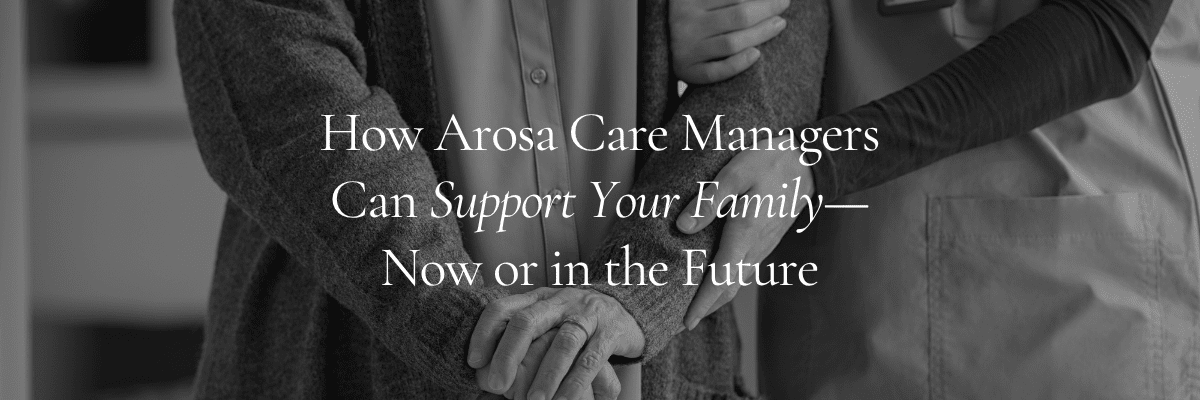How to Support a Client Who Has a New Medical Diagnosis
A client with a new medical diagnosis can feel scared, overwhelmed, and confused. Here’s what you can say and do to help:
Do you know the Greek myth of Persephone? She was in a field picking flowers when suddenly the ground beneath her feet split open. Hades, the god of the Underworld, appeared, and kidnapped Persephone, taking her to live with him in his underground kingdom. Persephone was forced to stay there until her father, Zeus, bargained with Hades so she could return to live with her family for six months each year.
Persephone’s life changed in an instant. One day she was picking flowers; the next, she was being held a prisoner in the Underworld.
I can’t help but think about Persephone whenever a client tells me that she, or her parent, has been recently diagnosed with a debilitating medical condition. Why? Because a dire medical diagnosis can leave someone feeling as though the earth has split open and swallowed them whole. Like Persephone, they can feel suddenly trapped by circumstances beyond their control.
Whether you’re a financial planner or an attorney, it’s likely you’ve had clients turn to you at times like these, and undoubtedly, you’ve wished there was something you could say or do to help. The good news is: there is! Even the simple act of being present and listening can be an enormous comfort. Beyond that, you may be able to offer services (or referrals) that can make your client’s burden a little easier to bear.But before I explain more about what you can do and say to help your client, let’s reflect for a minute on the range of emotions she may be experiencing after receiving an alarming medical diagnosis.
What Is Your Client Feeling Immediately After Receiving a Diagnosis?
At first, your client may be overwhelmed with the news of her diagnosis (or the diagnosis of her parent). It’s likely her thoughts are racing with questions and concerns about what lies ahead. With more than three decades of working with countless families and their aging loved ones, here are the most common reactions I’ve noticed:
Shock
When someone first hears less-than-desirable news about their health (or the health of a loved one), it often takes time for the information to sink in. Initially, your client is going to have more questions than answers. She is going to be wondering things like: What does this diagnosis mean for me? How are the doctors sure I have this condition? How will my life change? Am I going to die? Will I have to undergo treatment? What will that entail?
Your client may be asking these questions silently to herself, or she may be asking them aloud. Either way, it’s likely that even if answers are being provided, they’re not being heard. Receiving a medical diagnosis can be a traumatic event that leaves your client so fearful and overwhelmed that she is unable to process information.
Confusion
Because your client is in a state of shock, it will be difficult for her to make sense of what’s happening. Sure, she could quickly research the diagnosis, prognosis, treatment options, etc. online. There are also support groups eager to help with nearly every condition (The American Cancer Society, The Alzheimer’s Association, and The National Coalition for Women with Heart Disease, to name just a few). However, at least initially, the avalanche of all this information can make your client feel confused and even more helpless.
That’s why it’s often useful to enlist the support of a third party who can go along to medical appointments, take notes, and help wade through all the details.
Indecision
Deciding on a treatment plan can be a complicated process, so don’t be surprised if your client seems somewhat indecisive at first. She may want to get a second opinion, not only to confirm the diagnosis but to help determine the course of action. She also may be weighing the pros and cons of interventions, a process that can be quite convoluted, especially if she’s coping with the diagnosis of an elderly parent.
Unease
Not everyone is comfortable talking about their health, even with a trusted, professional adviser. It’s likely that your client is trying to figure out exactly how she wants to communicate her new diagnosis to the people in her world. Should she “go public” or keep the news to herself? How will her friends and co-workers react? How does it feel to hold a diagnosis like this from others? There are no easy answers, considering that certain conditions can be managed well, and privately, with treatment.
Seeing a client struggle with emotions like these isn’t easy. After all, you care about your clients and their peace of mind. Moreover, you want to help, however, you can. Here’s my short list of ways you can support your client and potentially ease their burden in a traumatic time.
What to Say and Do When a Client Has a New Diagnosis
Be present and resist the urge to “make it all better”
As your client talks to you about her condition, listen and be as present as possible. It may not be easy—no one enjoys hearing less-than-wonderful news—but be careful not to succumb to the desire to make it all better.
Being overly cheery or optimistically running through a list of all the people you know who have the same condition and are living beautiful lives invalidates how scared and confused your client feels. Instead, let her feel welcome to express the whole gamut of emotions—from fear to relief, to anger, to sadness. Just take it in, and respond authentically.
Offer your help in specific ways
While this is undoubtedly an unsettling time for your client, a caring offer to help with expanded professional services may bring needed relief. Rather than asking the generic “How can I help?”, identify specific tasks you could take on so that she can focus her time and energy on treatment.
“How can I help?” often falls on deaf ears. Right now, your client may not know what kind of help she needs. What’s more, she may not realize the full range of services you provide. Point her in the right direction by offering specific suggestions.
Recommend other resources
If your client is receptive to more information, offer additional resources, as appropriate. For instance, you might want to share a particular website you trust or the contact information of someone who could be of help, like an Aging Life Care Professional or a Care Manager.
Again, be specific and follow through. If you say you’ll email her the phone number for a dog sitter tonight, do it tonight.
Stay in touch
During this period, make it a point to check in with your client periodically. Ask how she is doing and reiterate your offers to help. A simple gesture of support like this can be incredibly encouraging to someone who’s coping with a new medical condition.
Feel free to say something like, “Would it be okay if I checked in with you next week? I care about you and want you to know that you can count on me to manage your accounts and keep your family in the loop about what I’m doing. That way, you’ll have one less thing to think about. That way, you’ll have one less thing to think about.”
If you have a client who has recently had a dramatic, life-altering medical diagnosis, she probably feels like Persephone, whose world changed in a flash. You, in turn, need to step up like Zeus did and find a way to ease the pain.
Sometimes, that means suggesting a team approach that may include estate planning attorneys, financial planners or credentialed care managers. These professionals can work together to develop a plan that helps your client face her post-diagnosis future with greater certainty and peace of mind.
© Arosa



